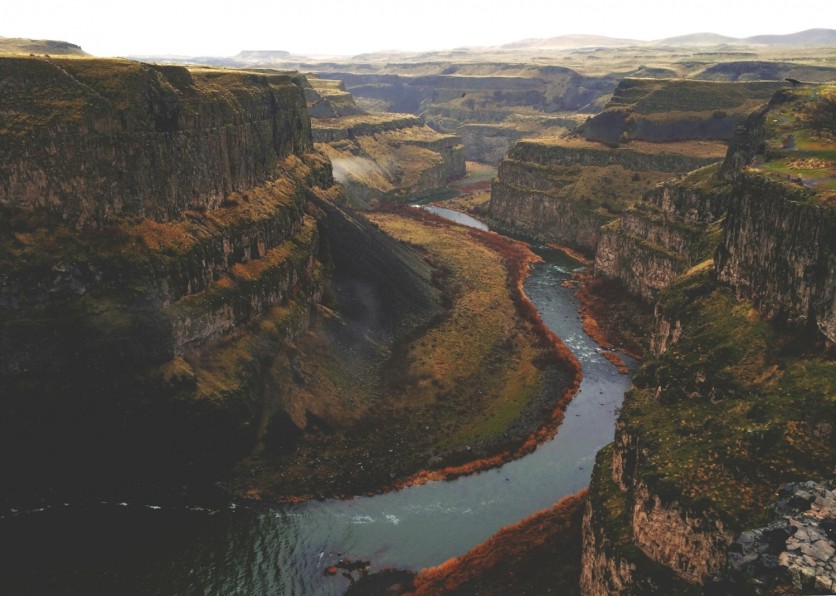Geologists have expressed concerns regarding potential Chinese censorship and bias in GeoGPT, a China-funded chatbot backed by the International Union of Geological Sciences (IUGS).
Beijing supports this AI chatbot to assist geoscientists, especially those in the global south, by leveraging vast amounts of geological data.
The Purpose and Development of GeoGPT

GeoGPT, a product of the Deep-time Digital Earth (DDE) program established in 2019, is designed to foster international scientific cooperation and aid in achieving the UN's sustainable development goals. The chatbot's AI foundation includes Qwen, a large language model created by Chinese tech giant Alibaba.
Related Article : Gemini AI Offers Different Response Mid-Sentence When You Ask Google About its Ethics
What's Alarming About GeoGPT
Just like other chatbots such as Gemini and ChatGPT, GeoGPT could pose a glaring level of bias and transparency.
Professor Paul Cleverley, a geologist and computer scientist, highlighted issues of transparency, state censorship, and potential copyright infringement in a recent article. These concerns were based on tests with a pre-release version of GeoGPT.
In response, DDE representatives asserted that GeoGPT also uses Meta's Llama language model and that no state censorship was observed during their tests. They emphasized that the system relies solely on geoscience information, making censorship unlikely.
"Problems with GeoGPT have been largely solved, but the team will be working to improve the system even more. It must be stressed that at present GeoGPT has not been released and is not in the public domain," the DDE representatives said.
Evidence of Influenced Responses
Despite these assurances, tests on Qwen revealed potentially biased responses. For instance, when asked about fatalities in a Ghanaian mining operation run by the Shaanxi Mining Company, Qwen cited outdated information and avoided specifics.
In contrast, ChatGPT, developed by OpenAI, provided detailed statistics on the incident. This discrepancy raises doubts about the objectivity of GeoGPT's responses.
DDE's Defense and Future Plans
Dr. Natarajan Ishwaran, head of international relations for DDE, stated that the team has full independence and that GeoGPT will not be subject to state censorship.
Users will have the option to choose between Qwen and Llama as the underlying AI model. Ishwaran assured that once GeoGPT is publicly available, its training database will be accessible to interested parties.
Strategic Implications and Resource Data Concerns
As The Guardian reports, David Giles, a professional geoscientist, warned that a Chinese-developed platform could filter information, potentially withholding valuable data for mineral exploration. This concern is heightened by China's aggressive pursuit of global mineral resources, which could provide strategic and economic advantages.
International Collaboration and Transparency Obligations
GeoGPT's development under the IUGS, an international NGO representing over a million geoscientists worldwide, places an obligation on the project to maintain transparency. Mohammad Hoque, a senior lecturer in hydrogeology and environmental geoscience, stressed the importance of knowing the data sources used to train GeoGPT to ensure unbiased and reliable information.
Funding and Support from China
The DDE program, heavily funded by Chinese sources, has raised eyebrows among geologists. The IUGS secretariat, based in Beijing, receives substantial financial and logistical support from the Chinese government.
Despite this, IUGS President John Ludden advocates for open data sharing, believing it will lead to scientific discoveries and investment in participating nations.
The Need for Transparency in GeoGPT
As GeoGPT moves closer to public release, the concerns about potential censorship and bias remain significant.
Ensuring transparency in its development and data sources is crucial to maintaining the credibility and utility of this tool for the global geoscience community.
Only through open and unbiased information can GeoGPT achieve its goal of enhancing geoscientific research and cooperation.
Read Also : ChatGPT 'Jailbreak' Version Dan Is Becoming Popular With Chinese Women Looking for AI Boyfriends

![Apple Watch Series 10 [GPS 42mm]](https://d.techtimes.com/en/full/453899/apple-watch-series-10-gps-42mm.jpg?w=184&h=103&f=9fb3c2ea2db928c663d1d2eadbcb3e52)



